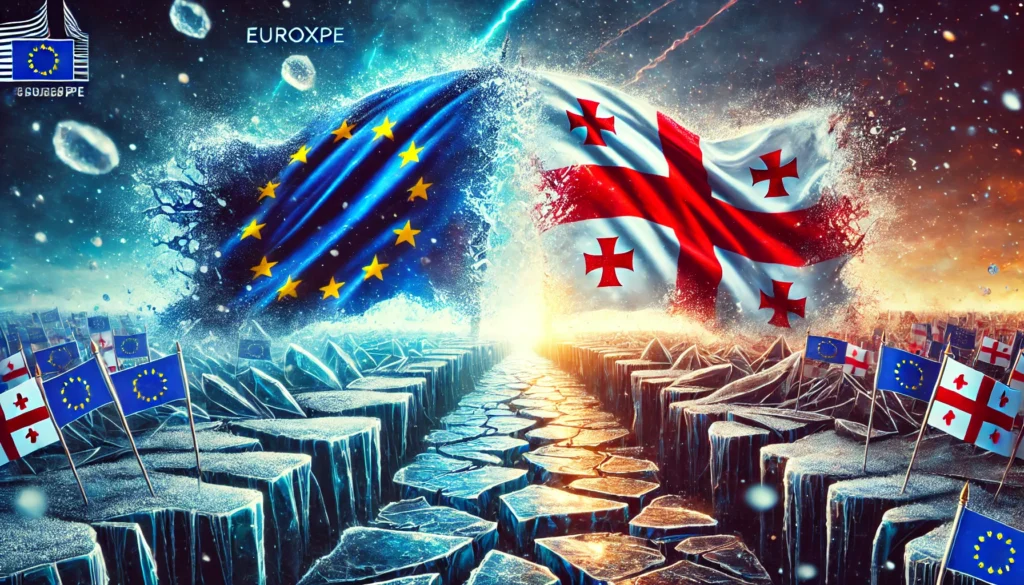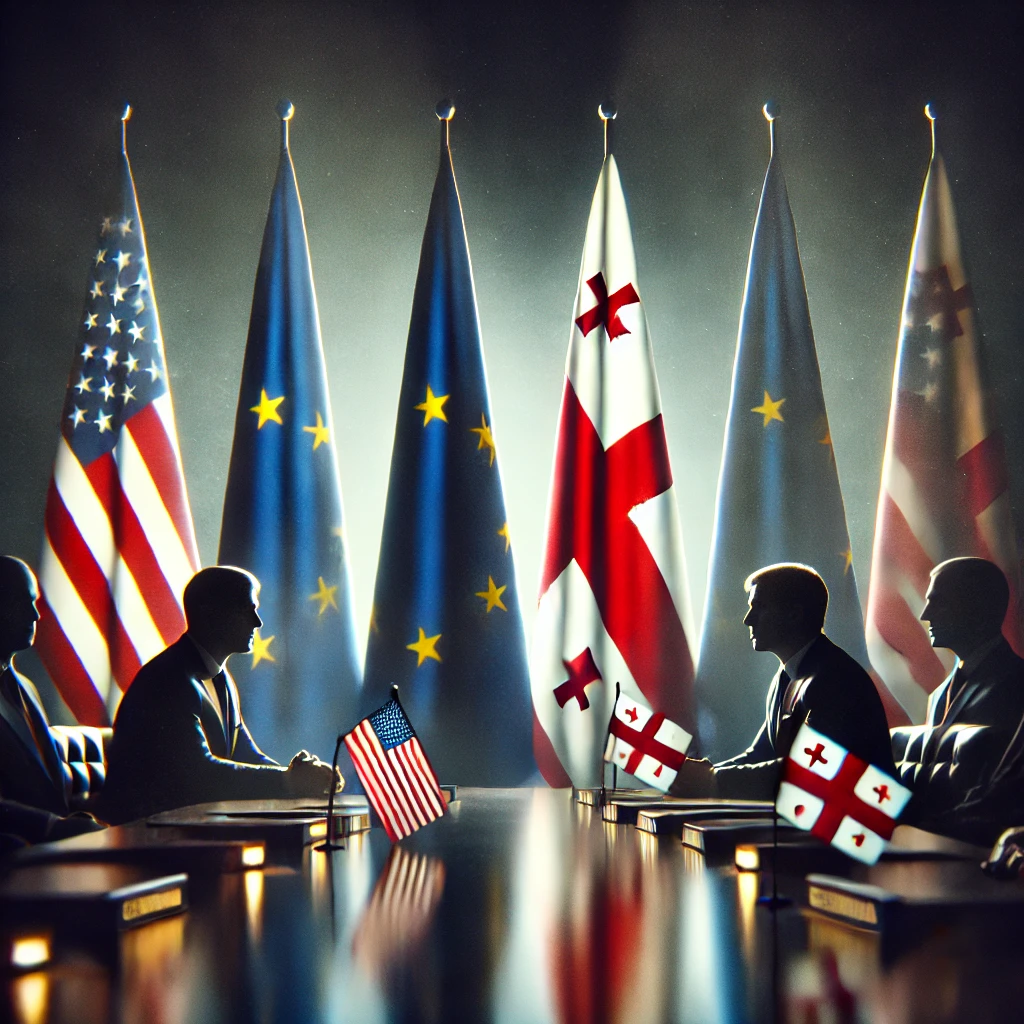Georgia’s aspirations to join the European Union have been abruptly halted, following the recent decision by the bloc’s member states. This comes mere months after Georgia was granted candidate status, a significant milestone in its EU membership journey. Paweł Herczyński, the EU’s envoy to Georgia, announced this development during an EU enlargement event in Tbilisi.
The decision to suspend Georgia’s EU accession process stems from the introduction of a contentious law by the governing Georgian Dream party. This new legislation aims to label Western-backed NGOs and media outlets as “foreign agents,” a move that has drawn sharp criticism. Legal experts and critics argue that this law is reminiscent of similar regulations in Russia, used to suppress dissent and silence civil society groups.
Public reaction to the bill has been intense. Tens of thousands of Georgians took to the streets in protest when the bill was passed by lawmakers at the end of May. The demonstrations were met with a heavy-handed response from riot police, who deployed tear gas and batons to disperse the crowds. Several opposition leaders were detained and subjected to violence by authorities. The EU and the US have both condemned these actions, expressing deep concern over the government’s authoritarian tendencies.
The ruling Georgian Dream party defends the new laws, claiming they are essential to prevent foreign interference in domestic affairs. However, this legislation, coupled with another bill inspired by Moscow that aims to strip LGBTQ+ individuals of their rights under the guise of combating “propaganda,” has alarmed many observers. The increasing anti-Western rhetoric and these legislative moves have raised fears about the country’s future direction.
In response to these developments, Washington has imposed sanctions on leading Georgian Dream politicians, accusing them of undermining democracy in Georgia. These actions have been seen as an attempt to thwart the country’s EU aspirations. Brussels has also warned that the foreign agent law is incompatible with EU membership, highlighting the country’s failure to uphold human rights and implement key reforms despite its candidate status granted last December.
The freeze on Georgia’s EU membership process will also entail the suspension of financial assistance from the European Peace Facility, the EU’s off-budget resilience fund. This includes a €30 million payment halt, affecting sectors like agriculture, winemaking, and other key industries that rely heavily on support from the EU and US aid agencies.
Paweł Herczyński lamented the current state of EU-Georgia relations, stating, “It is sad to see EU-Georgia relations at such a low point, when they could have been at an all-time high.” This sentiment reflects the broader disappointment felt by many who hoped for a closer integration between Georgia and the EU, a relationship now marred by political and legislative turmoil.
In conclusion, Georgia’s path to the European Union has been significantly hindered by its own government’s actions. The introduction of the foreign agent law and other restrictive measures have not only stalled the accession process but also led to a withdrawal of crucial financial support. The situation underscores the fragility of Georgia’s democratic processes and the challenges it faces on its journey towards European integration.

